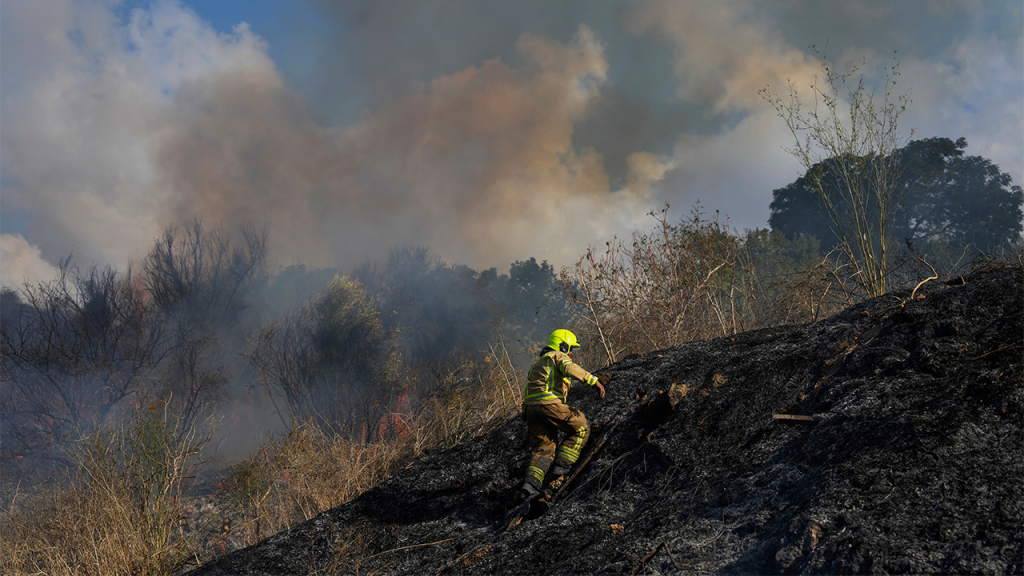A long-range missile fired from Yemen landed in central Israel early Sunday, prompting air raid sirens and images of fragments from the missile or interceptor that landed on a train station in Modiin. Although there were no casualties, a fire was observed in the rural area where it landed. The Israeli military reported that the missile likely fragmented in mid-air and that the fallen fragments from its missile interceptors caused minor damage at the Modiin station. Prime Minister Benjamin Netanyahu warned Israel’s enemies, stating that anyone who attacks Israel will face repercussions, mentioning the port of Hodeidah in Yemen as an example.
In addition to the attack from Yemen, about 40 projectiles were fired from Lebanon early Sunday, with some being intercepted and others falling in open areas. Reports indicated that the Houthis claimed responsibility for the missile strike, asserting it was a hypersonic missile fired from Yemen. The Israeli military clarified that the sounds of explosions heard were caused by the interceptors and not the missiles. Since the start of the war in Gaza, the Iran-backed Houthi rebels have continuously targeted Israel with drones and missiles, the majority of which have been intercepted over the Red Sea. No injuries were reported from the projectiles, and the Israel Fire and Rescue Services are working to extinguish fires caused by the fallen projectiles in open areas.
The ongoing conflict between Iran and its financed terror groups, such as Hamas, the Houthis, and Hezbollah, has led to attacks on Israeli and American targets. This has resulted in retaliatory strikes from Israel and its Western allies. These terror groups have exchanged fire with Israel almost daily since the Gaza war began nearly a year ago. Iran and its allies claim that their actions are in solidarity with the Palestinians. In July, an Iranian-made drone launched by the Houthis struck Tel Aviv, resulting in casualties. In response, Israel conducted airstrikes on Houthi-held areas in Yemen. The Houthis have also targeted commercial shipping in the Red Sea, claiming it is a blockade on Israel in support of the Palestinians, even though most of the ships targeted have no connection to Israel.
The attacks and counterattacks have led to tens of thousands of people being displaced on both sides of the Israel-Lebanon border. The region continues to be volatile, with frequent incidents of drone and missile attacks from various terrorist groups. Iran’s support for these groups has escalated tensions in the area, leading to a cycle of violence that has lasted for nearly a year. The conflict shows no signs of abating, with both sides continuing to engage in military actions and retaliations. The involvement of Western allies in support of Israel adds another layer of complexity to the situation, raising concerns about further escalation and potential consequences for the region.
The situation underscores the complex and interconnected nature of conflicts in the Middle East, with various groups and countries supporting proxy wars and engaging in military actions that have far-reaching implications. The ongoing conflict between Israel and its enemies highlights the challenges of finding a peaceful resolution and the risks of escalation. As tensions remain high and attacks continue, the international community faces the daunting task of finding a path towards de-escalation and eventual peace in the region. The involvement of Iran and its support for terrorist groups further complicates efforts to resolve the conflicts and underscores the need for diplomatic solutions to prevent further violence and instability in the region.


